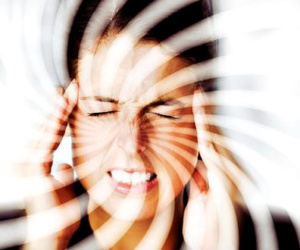Vertigo (Head Spinning Issue): Symptoms, Causes, Types & Treatment

Vertigo is the sense of the world moving, rotating, rocking, or spinning that is experienced even when a person is holding perfectly still. Some people use the term vertigo interchangeably with dizziness to describe a variety of symptoms, ranging from balance issues and difficulty with walking to motion sickness and bleary-eyed. However, most health care professionals consider vertigo to be a specific complaint that monopolizes the balance centers of the inner ear and the brain.
CAUSES OF VERTIGO:
Vertigo is often caused by a complication in the inner ear. Some of the most common causes include:
BPPV ( benign paroxysmal positional vertigo): BPPV occurs when minute calcium particles ( canaliths) clump up in canals of the inner ear. The inner ear sends waves to the brain about head and body motion relative to gravity. It helps you keep your stability. BPPV can occur for no known reason and may be associated with length of life.
Meniere’s Disease: This is an inner ear disease thought to be caused by the increase of fluid and fluctuating pressure in the ear. It can cause episodes of head-spinning along with ringing in the ears (tinnitus) and hearing impairment.
Vestibular neuritis or labyrinthitis: This is an inner ear problem usually associated with infection (usually viral). The infection causes inflammation in the inner ear around the nerves that are important for serving the body to sense balance.
Less often vertigo may be associated with:
Head or neck injury
Brain problems such as a stroke or a tumor
Certain medications that cause ear damage
Migraine headaches symptoms of Vertigo
Vertigo is often triggered by a change in the posture of your head
SYMPTOMS OF VERTIGO:
People with vertigo typically report it as feeling like they are:
- Spinning, revolving, rotate or turn
- Tilting
- Swaying
- Unbalanced
- Pulled to one direction
Other symptoms that may accompany vertigo include:
- Feeling nauseated
- Vomiting
- Abnormal or jerking eye movements
- Headache
- Sweating
- Ringing in the ears or hearing loss
TREATMENT FOR VERTIGO:
Treatment for vertigo relies on what is causing it. In many cases, vertigo resolves on its own without any treatment. This is because your brain can remodel, at least in part to the inner ear changes, depending on other mechanisms to maintain balance.
For some, treatment is needed and may include:
Vestibular Rehabilitation: This is a type of physical therapy pursue at helping strengthen the vestibular system. The function of the vestibular system is to send waves or signals to the brain about head and body motion relative to gravity.
PRECAUTIONS:
Anyone who experiences vertigo or other types of whirling should not drive or use a ladder. It may be a good idea to make adaptations in the home to prevent falls. Getting up slowly may alleviate the problem. People should also take care when gazing upward and should not make sudden changes in the position of the head.
Check out these links for relevant information: Neurological physiotherapy
For more details contact us on 📞9618906780, book an appointment
